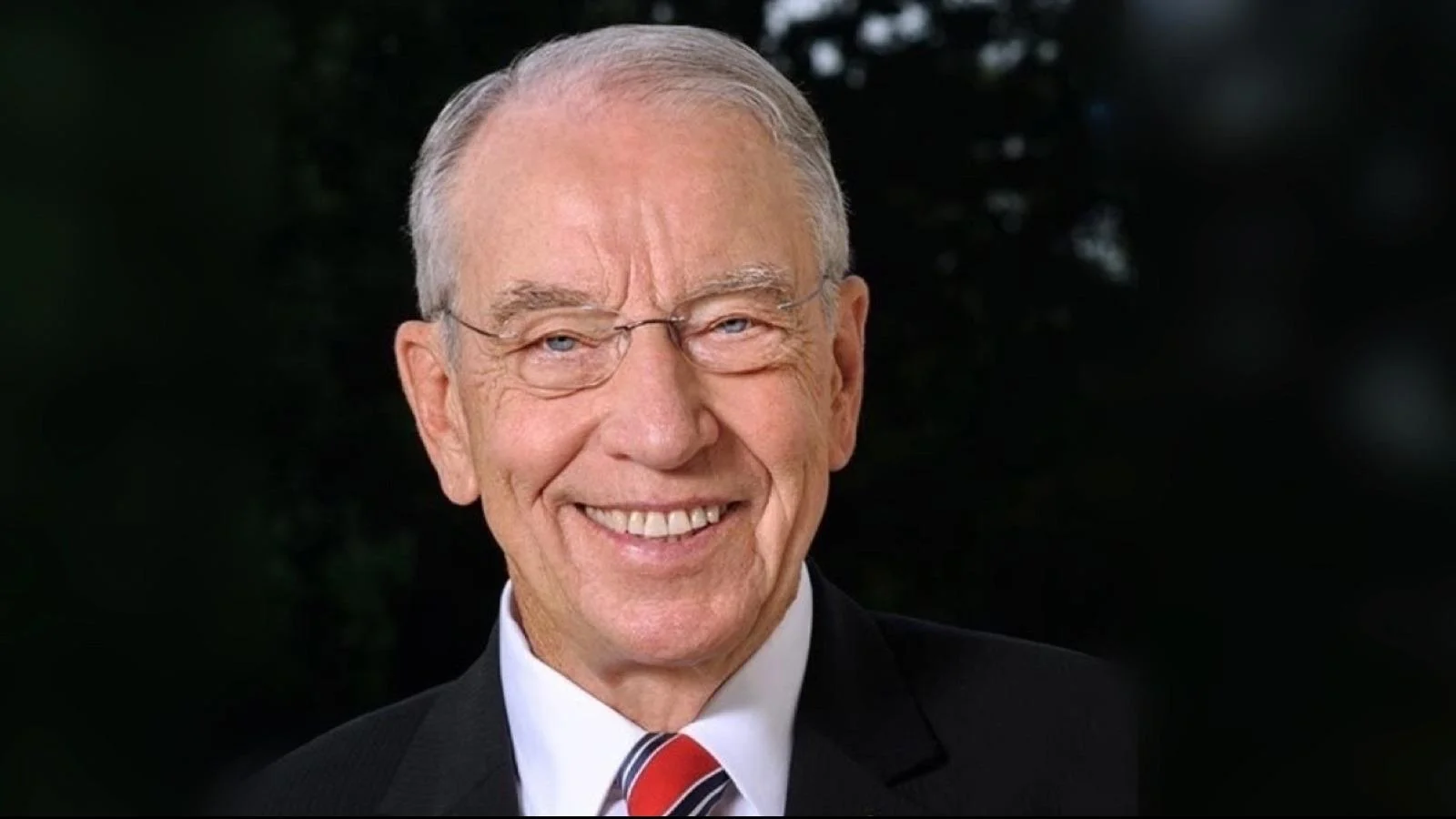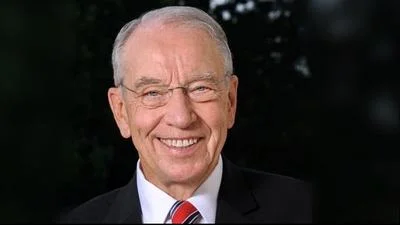Senator Chuck Grassley | Official U.S. Senate headshot
Senator Chuck Grassley | Official U.S. Senate headshot
Senator Chuck Grassley (R-Iowa), who chairs the Senate Judiciary Committee and is the only grain farmer in the Senate, led a hearing to address concerns about rising production costs for family farmers. The discussion focused on market consolidation in the seed and fertilizer industries and highlighted the lack of transparency following the discontinuation of annual fertilizer industry reports in 2014.
Grassley’s bipartisan Fertilizer Research Act aims to provide more information about factors affecting fertilizer prices, which are a significant expense for farmers. Witnesses at the hearing included Iowa farmers Noah Coppess from Coppess Family Farms and John Latham from Latham Quality Seeds. Both were asked how consolidation has affected their businesses, particularly regarding available corn and soybean varieties.
John Latham noted that "the percentage of a seed bag’s cost going to royalties has risen from 42% five years ago to 70% today." He cited data from the U.S. Department of Agriculture Economic Research Service indicating that Bayer and Corteva now account for over half of U.S. sales of corn, soybean, and cotton seeds.
Grassley submitted letters and statements from several organizations into the record, including one from the Iowa Corn Growers Association. Corey Rosenbusch, CEO of The Fertilizer Institute—which represents companies with significant operations in Iowa such as Bayer and Corteva—also testified during the session.
Other witnesses included Dr. Diana Moss, Vice President and Director of Competition Policy at the Progressive Policy Institute; Caleb Ragland, President of the American Soybean Association; and Andrew LaVigne, President and CEO of the American Seed Trade Association.
During questioning, Grassley addressed several topics:
"Mr. Rosenbusch, in 2014, the Obama administration discontinued annual reports on the fertilizer industry. Since then, prices have become more and more opaque, making it harder for farmers to know if they’re getting a fair deal.
My Fertilizer Research Act seeks to fill in these reporting gaps. So, could you tell us what measures are being taken to ensure transparency in pricing mechanisms so farmers aren’t unfairly penalized by last-minute price increases?"
He also asked Dr. Moss: "Dr. Moss, in your opinion, what types of public reporting could provide the necessary transparency in fertilizer markets for farmers looking to get a fair price?"
On market consolidation’s impact on business options for farmers:
"Mr. Latham and Mr. Coppess, major mergers and business transactions over the last decade reduced the ‘Big 6’ ag companies to only four. The U.S. Department of Agriculture’s Economic Research Service reports that Bayer and Corteva together account for more than half of U.S. sales of corn, soybean and cotton seed.
What impact does this have on your business? Has there been an impact on the number of corn and soybean varieties available to farmers?"
Grassley raised additional questions about competition policy enforcement related to trait stacking agreements among seed producers:
"Dr. Moss, in your opinion, if a trait owner conditions access in ways that predictably raises rivals’ costs or limits stacking with competing traits—is that a problem? And should it trigger enforcement?"
To Mr. Latham he asked: "Across corn and soybeans today are there still contractual or technical barriers that keep you from offering a seed with a competitor’s trait stacked alongside another? Could you describe specific clauses or data obligations that get in your way?"
He also questioned Mr. Coppess about potential supplier retaliation: "Farmers report rebate claw backs, delayed allocations and audit threats after trying rival products or services—could you give us some details where suppliers used rebate leverage or allocation delays as punishment?"
Further topics included antitrust disagreements within trade associations:
"Mr LaVigne… Is there disagreement among your members regarding antitrust issues laws or enforcement?"
National security risks posed by foreign ownership were discussed:
"This question would be to Dr Moss Mr Rosenbusch & Mr LaVigne Only one out four largest companies controlling ag market is US owned In your opinion does this represent any national security risk our country?"
Grassley also sought input on preventing domestic monopolies when import duties restrict supply chains:
"For you Mr Rosenbusch when single foreign supplier dominates essential input & Commerce/ITC impose duties choking off source what safeguards would Fertilizer Institute support prevent de facto domestic monopoly keep farmers supplied?"
Questions concluded with licensing practices’ effect on innovation versus restricting competition:
"Dr Moss… where's line between licensing speeding innovation vs walling off rivals especially stacked traits Do you support narrowly tailored measures similar FRAND agreements If so why?"
And finally about generic insect resistant traits' availability despite patent expirations:
"My last question will be for Mr LaVigne & Dr Moss I want understand why generic insect resistant traits haven’t materialized despite patent expirations I understand there does not appear single generic IR trait available growers notwithstanding frameworks touted solutions Why is this case?"






 Alerts Sign-up
Alerts Sign-up